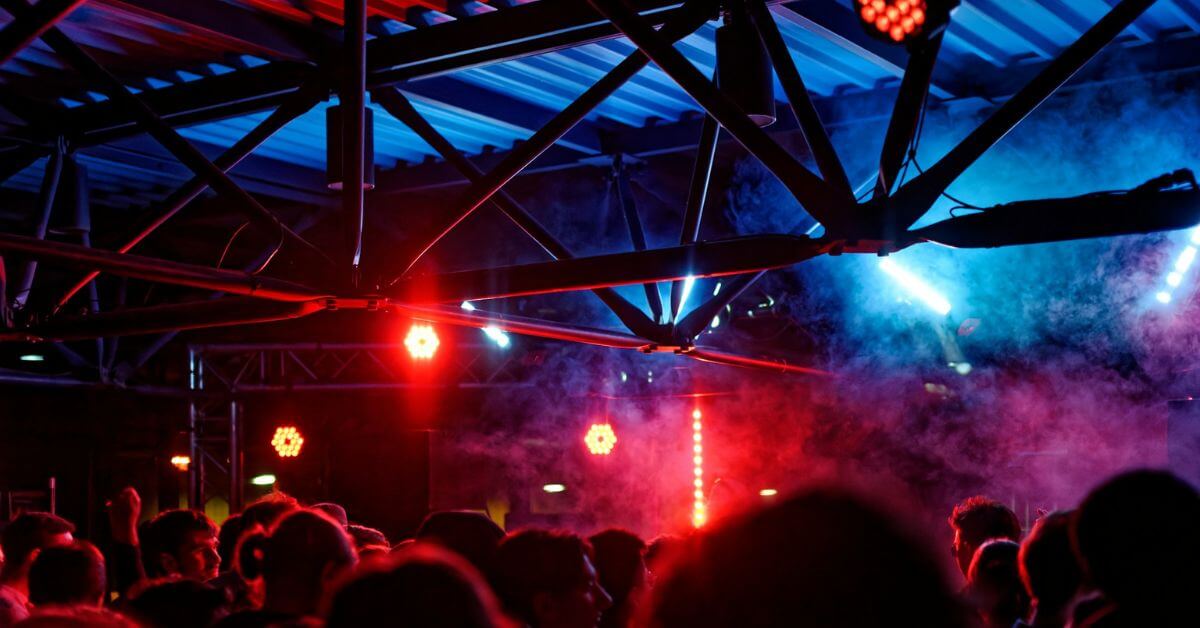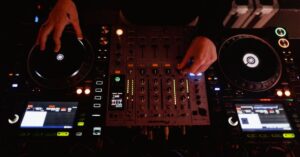In today’s modern music landscape, where new events are popping up from every corner, it’s worth taking a closer look at promoters. What exactly do promoters in the electronic music scene do—or, perhaps more importantly, what should they be doing? This post explores their responsibilities, the risks they take, and their crucial role in shaping the events that define the electronic music world.
Who Is a Promoter?
In simple terms, a promoter is the person behind an event who takes on the responsibility for organising and running it. Essentially, promoters connect artists—in this case, DJs and electronic music acts—with their audiences. They act as a vital link between the two groups, ensuring that events come to life and meet expectations.
Promoters operate across various types of events, ranging from festivals and club nights to private parties and label showcases. These can generally be divided into the following categories:
- Independent promoters: Individuals or small teams who organise events independently.
- Club-affiliated promoters: Those working directly with clubs to curate lineups and attract crowds.
- Festival promoters: Professionals responsible for large-scale, multi-day events.
- Labels and brands as promoters: Record labels or brands hosting events to promote their artists or strengthen their identity.
To illustrate how complex this can sometimes get, let’s consider a quick example: imagine the label Drumcode hosting a showcase at Berghain (as they’ve done in the past). In this case, Drumcode is the promoter, not Berghain. Berghain serves only as the venue where the event takes place.
Key Responsibilities of a Promoter
Event Planning and Organisation
At the heart of a promoter’s role lies meticulous event planning and organisation. The first step is securing a venue—a process that involves more than just booking the space. The promoter must negotiate and define the financial responsibilities, including who bears the risks if the event doesn’t meet expectations.
The type of venue heavily influences the promoter’s next steps. For outdoor locations or spaces not typically used for events, obtaining permits and adhering to noise restrictions are often necessary. The promoter may also need to manage liquor licences, oversee beverage logistics, and coordinate bar services to ensure everything runs smoothly.
Technical arrangements are another critical aspect. If the venue lacks the required equipment, the promoter must handle the logistics of renting, delivering, and setting up sound systems, lighting rigs, and DJ backline equipment. This requires close coordination with the venue to ensure everything is properly installed and functional before the event.
For nightclub events, the process can be slightly less complex, as most clubs are already equipped with the necessary audio-visual infrastructure. However, even in these cases, the promoter must verify that the equipment meets the artists’ requirements and that everything is in working order. Communicating clearly with the venue staff ensures there are no last-minute surprises.
From logistical planning to technical setup, this stage is the foundation of a successful event. By anticipating potential challenges and coordinating every detail, the promoter ensures the event is ready to meet both artist and attendee expectations.
Booking Artists
One of the promoter’s central responsibilities is scouting and booking the artists who will define the event. Whether it’s securing international headliners or showcasing local talent, this involves negotiating deals that align with the event’s budget and vision. These agreements must be formalised in contracts that outline performance fees, set times, and any additional requirements the artists may have.
For high-profile acts or artists travelling from afar, the promoter often needs to handle accommodation and logistics. This includes booking suitable hotels and coordinating smooth transportation for the artist—from their arrival at the airport to their hotel, then to the venue, and back again. These arrangements are especially crucial to ensure the artist can focus on their performance without unnecessary stress.
When working with larger artists, the promoter typically collaborates with the artist’s booking agency rather than directly communicating with the artist. This adds an extra layer of complexity, as clear communication with the agency is vital to ensure every detail is managed effectively. Missteps in this process can lead to last-minute issues that impact the event.
Finally, the promoter is responsible for ensuring artists are paid promptly and according to the agreed terms. This final step is critical for maintaining professional relationships and the event’s reputation within the industry.
Marketing and Promotion
While event planning and artist booking are essential behind-the-scenes tasks, marketing and promotion are the first steps visible to the public. Up to this point, no one outside the organisational team has seen the work being done. From here, the event’s public image is crafted, and how it’s perceived by the audience will be defined. This stage is crucial, as it determines whether the event attracts attendees and stands out in a crowded market.
Marketing involves two key objectives: attracting guests and establishing the event’s identity. On one hand, the focus is on spreading the word and creating awareness to drive ticket sales. On the other, it’s about communicating the event’s vision, its unique atmosphere, and its position within the music scene.
To achieve this, the promoter needs to develop a strong branding strategy and a clear USP (Unique Selling Proposition). What sets the event apart? Is it the lineup, the concept, or the location? Once the branding is defined, it can be communicated through various channels. Social media campaigns are often the backbone of modern event promotion, allowing for targeted advertising and engaging directly with potential attendees. Depending on the scale and budget of the event, the promoter may also incorporate more traditional methods like posters, flyers, or even print and TV ads.
A well-executed marketing campaign does more than just sell tickets—it builds anticipation and helps position the event as an integral part of the electronic music scene.
Ticketing and Pricing Strategy
The promoter is also responsible for setting the ticket price and ensuring that the sales process runs smoothly. A key objective is to reach the break-even point as quickly as possible to cover costs. However, it’s just as important to find the right balance in pricing. If the ticket price is too high, it could discourage potential attendees, especially if they feel the value doesn’t justify the cost.
Pricing needs to reflect the event’s market, the quality of the artists, and the venue’s size and location. Promoters must carefully evaluate these factors to avoid pricing themselves out of their target audience while still covering all expenses and generating profit.
In addition to pricing, the promoter must partner with ticketing service providers to ensure an efficient and accessible sales process. This often includes setting up online ticket platforms where buyers can easily purchase tickets and receive confirmation. Working with reliable ticketing platforms ensures a smooth customer experience and helps track sales, providing the promoter with valuable insights into demand and attendee numbers.
An effective ticketing strategy also means monitoring early sales and considering any necessary promotional discounts or limited-time offers to build momentum.
Challenges and Risks Promoters Face
Promoters face significant financial risks due to the numerous upfront costs they incur. These can include booking the venue, paying for security personnel, covering artist fees, arranging for sound and lighting equipment, marketing, and securing necessary licenses. If ticket sales don’t meet expectations, the promoter may end up at a loss. This financial burden requires careful planning and market research to minimize the risk of low attendance.
Aside from financial concerns, promoters are also responsible for the safety and success of the event. If any issues arise, such as exceeding noise level limits or, in the worst-case scenario, an accident occurring during the event, the promoter must take accountability. To mitigate such risks, it’s often wise for promoters to have insurance coverage. Additionally, operating as a limited liability company (LLC) rather than as an individual can provide a layer of protection against personal liability.
Promoters also face the challenge of competition. In major cities, where multiple events may be happening on the same night, standing out in a crowded market becomes crucial. It’s important to differentiate the event, whether through the artists, the venue, or the event’s unique concept. This requires strong marketing and branding strategies, as well as the ability to tap into the right audience.
Unpredictable factors also pose risks. For example, outdoor events are always subject to weather conditions, and last-minute cancellations—whether from artists or logistical issues—can create chaos.
The Importance of Promoters in the Electronic Music Scene
Promoters play a vital role in the electronic music scene, acting as the backbone that supports and drives live events. They are the essential link between artists, venues, and audiences, ensuring that everything comes together smoothly from the initial planning stages to the event’s final moments. Without promoters, many of the events we love wouldn’t come to life.
For DJs and producers, it’s crucial to recognise the hard work and dedication that promoters put into creating these experiences. Next time you’re at an event, take a moment to appreciate the behind-the-scenes efforts that made it all possible.







